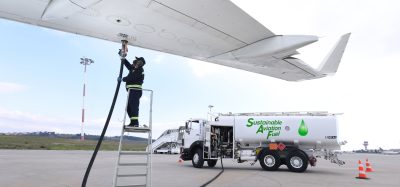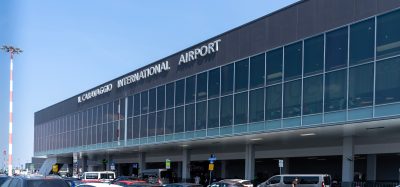The journey to the summit of airport experience
Posted: 7 January 2025 | Ramón Miró | No comments yet
Ahead of the International Airport Summit 2024 where he will be speaking, Ramón Miró, President & CEO, Quiport, shares how passenger experience, sustainability and technology are driving operational excellence at Quito Airport.
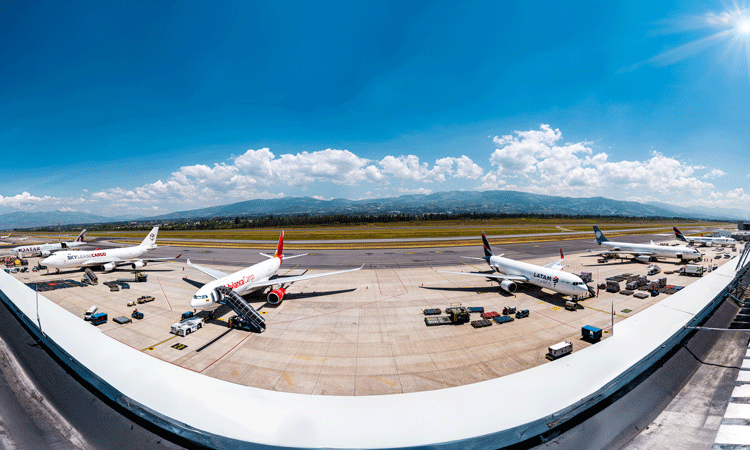

c: Quiport
What is the biggest change you have seen in your passengers and the way they behave, their wants, needs and expectations they have of you as an airport? And how are you working to adjust to this?
The main focus of Quiport, as the concessionaire of Quito Airport, is the passenger experience. Understanding passengers’ needs is at the heart of our approach, driving us to conduct regular satisfaction surveys and analyse buyer personas for deeper insights. Our research shows that travellers consistently value four key attributes: friendliness, cleanliness, prompt information and security. These priorities guide our efforts to implement enhancements that foster a positive travel experience. By collaborating closely with all service providers at the airport, we ensure these core values are upheld, continuously striving to meet and exceed passenger expectations.
A prime example of our efforts to improve the passenger experience is our push for a quicker, more user-friendly process, where technology plays a pivotal role. Working alongside airlines and public institutions, we’ve implemented several technological advancements to streamline operations. However, we recognise that many of our passengers also place great value on personal interaction, perhaps as a reflection of our cultural heritage. This dual demand presents a unique challenge: balancing the needs of frequent travellers who appreciate the efficiency of handling most steps independently with those of first-time flyers who require more guidance. To meet this challenge, we have our expanded Passenger Experience Committee – comprising representatives from various companies operating within the airport. This group addresses key issues, including complaints and suggestions, analyses the passenger journey through the terminal and conducts surveys to better understand their needs – all aimed at ensuring that every traveller receives the support they need.


c: Quiport
It is important to also mention that we believe that a good passenger experience is a direct reflection of the experience of our employees, who are responsible for providing services at the airport, as well as the employees of the entire airport community. This is why both our internal and external customers are equally important in our strategies, improvement actions and training programmes.
Free webinar – The future of asset management in global aviation
15 January, 2026, 02:00PM GMT
Join this virtual panel to hear from some of the AtkinsRéalis and aviation sector experts as we discuss how asset management is changing and the impact it will have on the future operations of airports throughout the world.
The synergy between public and private companies that make up the airport community, along with a shared vision of continuous improvement, has enabled us to achieve significant recognition. Such awards we have received are: Best Regional Airport, Best Airport Staff, Cleanest Airport, Most Punctual Airport, and 5-Star Airport, among others. These accolades confirm that we are achieving our goals.
You currently hold a level 5 in the ACI World ASQ programme – the highest level. What technology or initiative has made the most difference to the service quality of your airport?
Currently, Quito Airport has achieved Level 5 in the ACI Passenger Experience programme, the highest level of accreditation. This accomplishment reflects our adherence to high standards in operations and services, as well as a comprehensive process of reviewing and training that fosters the development of our employees. According to ACI criteria, this is the only accreditation that provides a global perspective on overall airport management, encompassing both experience and customer service.
As part of our initiative to enhance passenger experience in smart airports, Quiport implemented a project in 2023 focusing on automation and biometrics, which included three key processes: biometric systems for immigration control in international arrivals, biometric boarding for Delta Airlines flights to the United States, and automatic access gates to security checkpoints. This initiative is part of a broader technological transformation project at Quito Airport aimed at improving efficiency, security and the traveller experience. The positive impacts and successes of the project can be summarised as follows:
- By using the biometric boarding process for flights to the United States with Delta (currently limited to this airline), the boarding time for each flight has been reduced to approximately 15 minutes
- Before reaching the security area, the implementation of E-gates allows for precise identification of passenger dwell time, helping to develop strategies to improve and optimise queue flows
- Regarding biometric gates at the immigration area for arrivals, the development allows for better capacity utilisation, more agile and continuous service and reduced immigration processing time. At the counter, the processing time is about 1.15 minutes, whereas with the biometric gate it is approximately 35 seconds.
Considering the shortage of immigration staff at Quito Airport, this solution provides 24/7 immigration services, regardless of the number of active personnel.
In 2024, we continue to work on delivering better technological solutions focused on self-check-in processes, self-bag-drop, and replicating biometric immigration gates for the departures area.
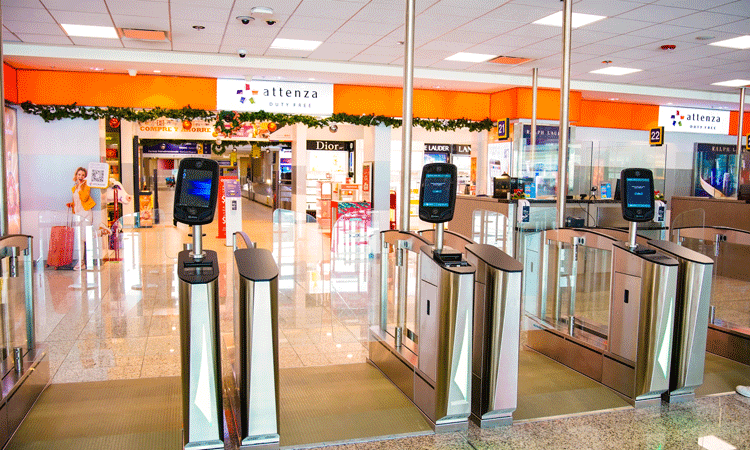

As part of the company’s initiative to enhance passenger experience in smart airports, Quiport implemented a project in 2023 focusing on automation and biometrics. This initiative is part of a broader technological transformation project at Quito Airport aimed at improving efficiency, security and the traveller experience. c: Quiport
In April 2024, Quito International Airport was awarded for the ninth time, the title of Best Regional Airport in South America at the Skytrax Awards – what do you attribute this success to?
Our success in obtaining the title of Best Regional Airport in South America at the Skytrax Awards is due to a combination of key factors, but undoubtedly the most important one is the unwavering commitment to continuous improvement of the entire team at Mariscal Sucre International Airport, led by Corporación Quiport. Our focus has been on creating an airport environment that prioritises the passenger experience, and this award reaffirms that we have achieved that goal.
The key to our success lies in offering practical solutions that facilitate our passengers’ journeys and optimises their time. We also strive to always be at the forefront, providing impeccable and comfortable facilities, as well as customer service that goes beyond expectations. We maintain a rigorous focus on continuous improvement, adapting to the changing needs of our passengers, and working closely with our airlines, commercial operators, and local and national authorities.
All of this translates into a smooth and pleasant travel experience for the millions of passengers who pass through our facilities each year. This award is a recognition of our shared effort, and our challenge is to continue improving every day to keep providing world-class service.
Quito Airport has just achieved the Level 4+ Transition in the Airport Carbon Accreditation Programme, the first airport in Latin America and the Caribbean to achieve this certification. What has made the biggest difference for you in reducing your emissions? What tips would you give to other airports in your region who are making the same journey as you?
Reaching Level 4+ of Transition in the Airport Carbon Accreditation Programme has been a monumental achievement for Quito Airport, achieved after many years of diligent work. This recognition demonstrates the strong commitment of Quiport and our entire airport community to a more sustainable and resilient future in the current context of climate change.
The main driver of our efforts has been operational efficiency. We focus on managing processes that optimise resource use, especially in reducing energy consumption, which accounts for around 70% of the total Scope 1 and 2 emissions of the airport. Thanks to this approach, over the past nine years, we have managed to reduce our emissions by more than 50% compared to 2015 levels, positioning us as a leader in the region in terms of carbon neutrality.
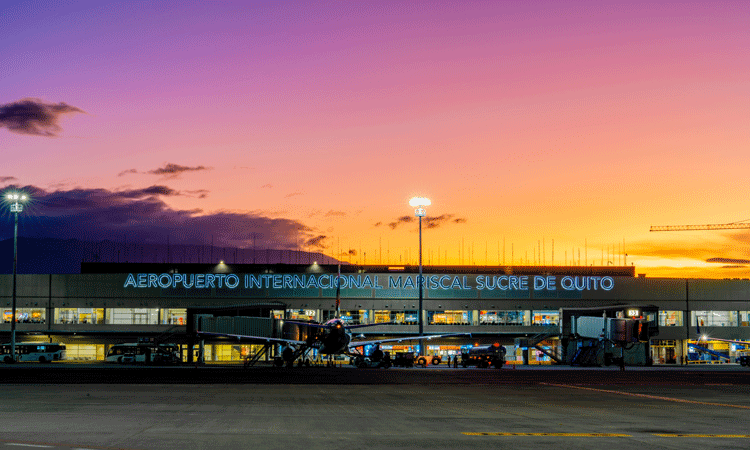

c: Quiport
To other airports starting or continuing this journey, I would recommend conducting a diagnosis of their emission sources to identify alternatives available in local markets as a first option, which also allows for a transition to emission mitigation. Understanding alternatives enables the development of strategies tailored to each airport’s context, according to their organisational and operational limits. Although the initial investment in these projects can be significant, a lifecycle analysis shows that the long‑term benefits are tangible. Reducing emissions not only decreases environmental impacts, but also generates savings, as fewer emissions translate to lower operating costs.
The challenge continues, but with a clear vision and a consistent focus on sustainability, the benefits are both environmental and economic. We invite other airports to join this effort, take decisive action, and be part of the transformation towards more sustainable aviation.
You recently signed an agreement with the Fund for the Protection of Water (FONAG), to replace the water footprint that the airport uses. Congratulations, as this is a pioneering move. What are the biggest uses of water at the airport and how are you working to reduce this?
The signing of the agreement with the Water Protection Fund (FONAG, as per its initials in Spanish) for offsetting our water footprint represents a fundamental step in Corporación Quiport’s climate change strategy. While we have worked hard on managing emissions, we understand that, in the new climate context, responsible water use is crucial to ensuring the sustainability of our airport operations.
The offsetting of the grey and blue water footprints that we are implementing not only helps us mitigate our impact, but also ensures the future supply of water for the airport. This is achieved through the conservation of the Ponce Paluguillo hydrological reserve and wildlife refuge, which is our main water source. This approach not only guarantees the sustainability of our operations, but also contributes to the protection of ecosystems and the biodiversity of this ecosystem.
Water is a vital resource for the airport, with its main uses directed towards commercial and domestic activities. Operating 24 hours a day, 365 days a year, requires constant water consumption. However, even before focusing on offsetting our water footprint through contributions to FONAG, we had already taken significant measures to reduce our consumption.
Our efforts have included replacing conventional faucets and toilets with more efficient, low-consumption models, which has allowed us to reduce potable water consumption by more than 30% in 2023 compared to 2019 levels when we began quantifying our water footprint.
In 2023 you were named as “most on‑time airport” in the small airport category according to the ‘2023 on-time performance review’ by Cirium. 90.20% of flights left your facilities on time – a stellar performance. What do you attribute this success to?
Being named the “most punctual airport” in the small airports category according to Cirium’s 2023 On-Time Performance Review, with an impressive 90.20% of flights departing on time, reflects several key factors that have collectively been crucial to achieving this success.
Firstly, the commitment of the airlines operating at our facilities has been fundamental. The management and co-ordination we maintain with them, as well as with government entities handling security (EPMSA) and immigration control, ensure smooth and well-organised operations at all times. This level of collaboration among all the stakeholders involved in the operation allows us to respond quickly and efficiently to any situation that could affect flight punctuality.
The size of our airport also plays an important role. As a smaller-scale airport, we can optimise our operations and streamline processes more efficiently. This allows for greater responsiveness and control in daily planning.
Additionally, we have implemented innovative technological solutions, such as the use of biometrics and process automation, which have reduced wait times and improved the passenger experience. These technologies not only facilitate passenger flow, but also directly contribute to maintaining scheduled timeliness.
Maintaining this level of punctuality is an ongoing challenge, but we remain committed to providing efficient, high-quality service to all our passengers.
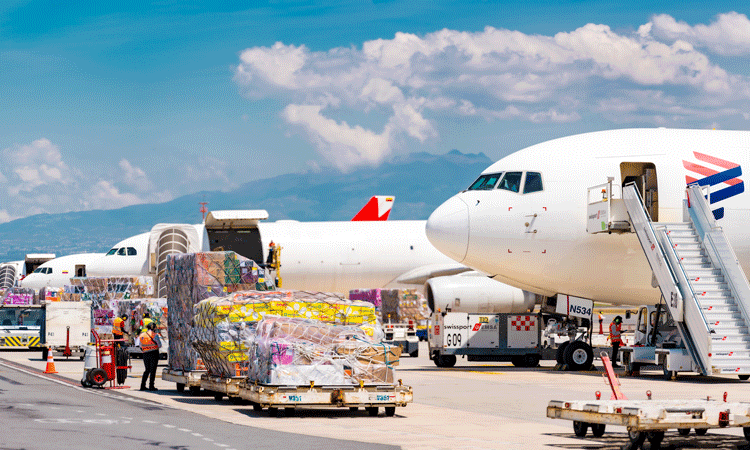

In 2023 Quito Airport was named as “most on-time airport” in the small airport category according to the ‘2023 on-time performance review’ by Cirium. 90.20% of flights left its facilities on time.
c: Quiport
How does Quiport make data-driven decisions in order to achieve operational excellence?
Quiport has adopted a comprehensive and advanced approach to data-driven decision‑making, powered by a robust Data Governance Strategy that encompasses all our operations. This strategy not only focuses on collecting internal data, but also seeks to integrate critical external sources that provide a more complete view of our processes and help us improve passenger experience and operational efficiency.
Through this strategy, we analyse key metrics in real-time, such as wait times at various points in the airport, passenger dwell time in the facilities, and their purchasing behaviours. These data allow us to optimise operations by enabling us to allocate resources more efficiently, anticipate bottlenecks and enhance our commercial service offerings based on passenger preferences.
Additionally, we closely monitor passenger satisfaction indicators, which are essential to ensuring a world-class experience. We combine these data with information on airline punctuality and other operational factors to identify areas for continuous improvement.
Most importantly, our Data Governance Strategy allows us to be proactive. We not only respond to issues as they arise, but also use predictive models to foresee and address challenges before they impact our operations or the passenger experience. The key to our success lies in the ability to integrate and analyse data from multiple sources to make informed, agile and strategic decisions that position us as leaders in the airport industry.
You are speaking on the above topic at the International Airport Summit, what are you looking forward to learning from the other speakers on your panel?
Participating in the panel at the International Airport Summit alongside representatives from renowned companies and airports from other countries and regions is very valuable. We are interested in sharing our experiences, but also in learning from other industry leaders both about the latest megatrends shaping the future of aviation and the latest technological breakthroughs and applications. I am particularly excited to explore how advanced digitalisation, the use of artificial intelligence, automation and biometrics are revolutionising airport operations.
It is also important to address sustainability topics, such as the transition to renewable energy and carbon management at airports. The need to adapt to climate change and the growing focus on decarbonisation is driving the industry to rethink its infrastructure, systems and processes. Learning from the pioneering approaches of other airports will be key to advancing our own sustainability agenda.
The third major focus area for us is passenger experience, not only from the perspective of technological innovation, but also from the standpoint of diversity and inclusion. We additionally need to understand and evaluate what other airports are doing regarding issues like accessibility. This is an area where we must make progress to offer the best travel experience to all the different passenger profiles we serve.


Stay Connected with International Airport Review — Subscribe for Free!
Get exclusive access to the latest airport and aviation industry insights from International Airport Review — tailored to your interests.
✅ Expert-Led Webinars – Gain insights from global aviation leaders
✅ Weekly News & Reports – Airport innovation, thought leadership, and industry trends
✅ Exclusive Industry Insights – Discover cutting-edge technologies shaping the future of air travel
✅ International Airport Summit – Join our flagship event to network with industry leaders and explore the latest advancements
Choose the updates that matter most to you.
Sign up now to stay informed, inspired, and connected — all for free!
Thank you for being part of our aviation community. Let’s keep shaping the future of airports together!
Issue
Related topics
Autonomous Technology, Biometrics, Data, Emissions, New technologies, Operational efficiency, Passenger experience and seamless travel, Security, Sustainability, Workforce




